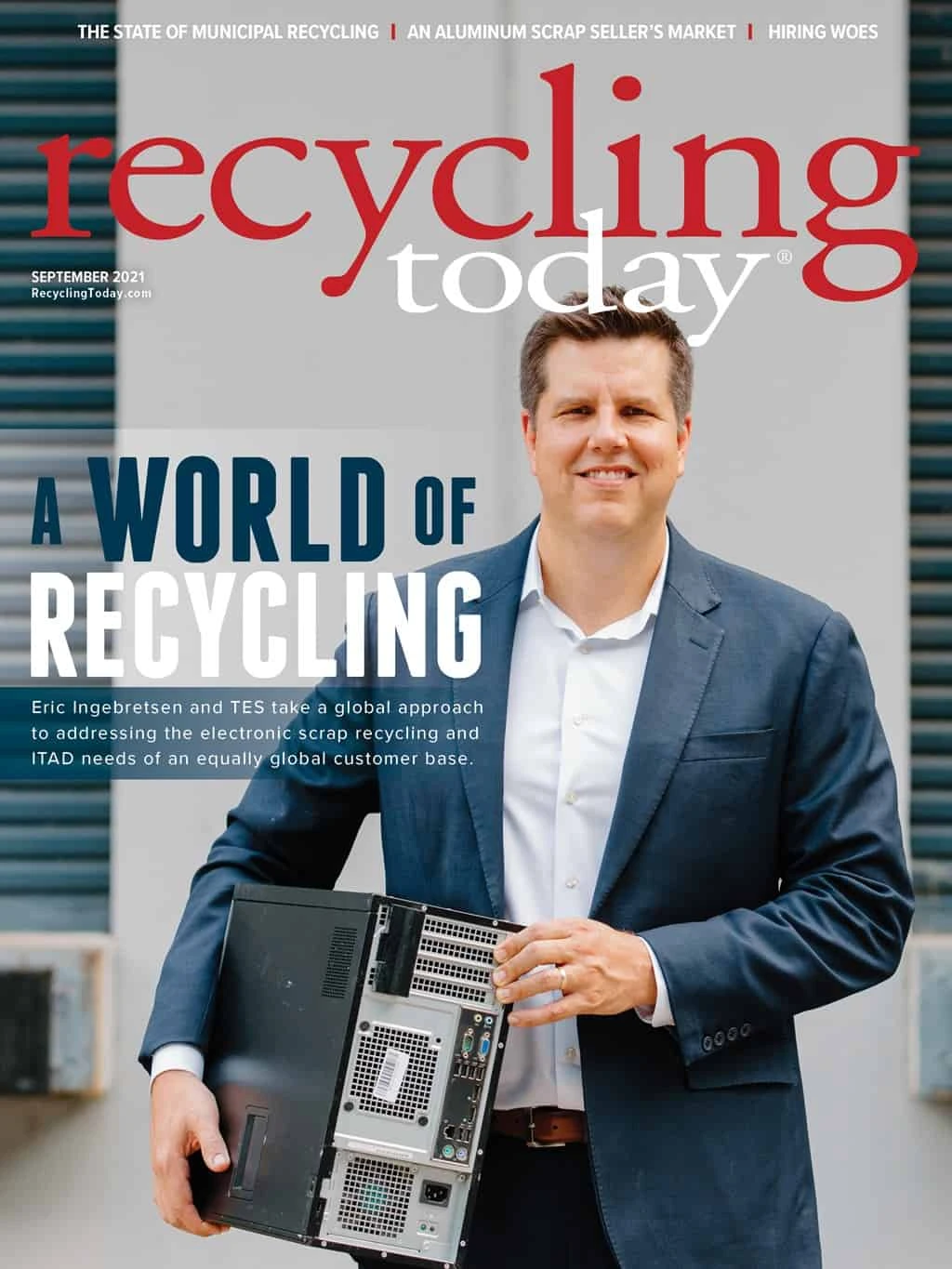
Indonesia affirms scrap import impurities rule
The Ministry of Trade in Indonesia officially has affirmed that pre-export inspected recyclables, primarily metals and paper scrap with an impurities threshold of up to 2 percent, can be imported into the country. The Washington-based Institute of Scrap Recycling Industries (ISRI) received notice of the Ministry of Trade in Indonesia’s decision in a letter dated July 16.
“ISRI is grateful to the government of Indonesia for working with us to establish a technical regulation that addresses their interests to import only specification-grade raw materials,” ISRI Vice President of Advocacy Adina Renee Adler says. “Our members also received tremendous support from the U.S. embassy throughout the process, and we thank them for their hard work and support.”
According to ISRI, the letter states: “The importation of Non-Hazardous and Toxic Waste (hereafter referred as non-B3 waste) for industrial raw materials must be verified in the country of origin prior [to] shipment to Indonesia, as stipulated in the Regulation of Minister of Trade of The Republic of Indonesia Number 83 of 2020. The Joint Decree which was enter[ed] into force since May 27th, 2020, regulates that the impurity tolerance limit for paper and plastic non-B3 waste is 2 percent maximum. In that relation, the implementation of impurity provisions will be further regulated through the Regulation of the Director General of Foreign Trade Ministry of Trade of the Republic [of] Indonesia, which currently still [is] under discussion with relevant ministries.”
According to ISRI, the Indonesian government told the association in 2019 that its impurities threshold would be 2 percent at the outset and transition to 0.5 percent in two years.
ISRI and its members participated in a variety of advocacy efforts to solidify the regulation, including trips to Indonesia to brief that nation’s government and conduct training on the ISRI specifications with testing, inspection and certification provider Cotecna.
Indonesia’s new impurities ruling is to go into effect in September.

Maine passes nation’s first EPR bill for packaging
Maine is the first state in the United States to require producers of packaged goods sold in the state to finance the maintenance and expansion of municipal recycling programs. The extended producer responsibility (EPR) bill also will provide funds to improve recycling in the state through education and infrastructure investments.
The bipartisan bill, L.D. 1541, was introduced by Maine Rep. Nicole Grohoski and was signed into law July 12 by Maine Gov. Janet Mills.
“I’m proud that once again, Maine is a national leader when it comes to commonsense environmental protections. This new law assures every Maine community that help with recycling and lowering the property tax burden is on the way,” Grohoski says. “It’s time for packaging producers to take responsibility for their waste stream in the Pine Tree State, as they do in more than 40 other countries and regions worldwide.”
Under the new law, Maine’s Department of Environmental Protection (ME DEP) will select and contract with a stewardship organization to operate a packaging stewardship program that will reimburse and assist municipalities in providing recycling services through the state. Brand owners selling packaged goods in the state must pay fees on all packaging materials to the stewardship organization to fund the system. The fees will be based on the costs of recycling each material and will include infrastructure investments or education to ensure materials are collected statewide. The fee structure, which will be determined by ME DEP with multistakeholder input, also will include financial incentives for recyclable packaging.
Additionally, producers will assess the statewide recycling system to determine the funds needed for the program, collection and recycling infrastructure gaps in the state and consumer education needed to ensure robust recycling. The bill also enables packaging producers to establish, fund and operate “alternative collection programs” to facilitate reuse and recycling of these materials.
“With this new law, Maine residents will save millions of dollars and finally be on a path to a stable recycling system,” says Scott Cassel, CEO and founder of the Product Stewardship Institute (PSI), which is based in Boston. “It will also provide producers with the financial incentive to make more sustainable packaging.”
According to a news release from PSI, the organization has promoted EPR for packaging for the past 15 years and developed a model bill that has informed legislation introduced in eight states, including Maine.
Maine’s bill was driven in large part by Sarah Nichols, Sustainable Maine program director at the Natural Resources Council of Maine (NRCM), which is an environmental advocacy group based in Augusta, Maine.
“Maine is sending a strong signal that it’s time for big corporations and brands to do their part to curb plastic pollution and reduce wasteful packaging,” Nichols says. “The plastic industry and multinational corporations have reaped billions, while they let plastic waste and packaging drive up costs for taxpayers and pollute Maine’s environment. This new law will help create the change we need to make recycling more effective, reduce single-use plastics and bring relief to Maine’s small towns.”
According to a news release from NRCM, ME DEP estimated in a 2019 report that it costs the state’s municipalities between $16 million and $17.5 million each year to manage packaging through recycling or disposal.

Explore the September 2021 Issue
Check out more from this issue and find your next story to read.
Latest from Recycling Today
- BMW Group, Encory launch 'direct recycling’ of batteries
- Loom Carbon, RTI International partner to scale textile recycling technology
- Goodwill Industries of West Michigan, American Glass Mosaics partner to divert glass from landfill
- CARI forms federal advocacy partnership
- Monthly packaging papers shipments down in November
- STEEL Act aims to enhance trade enforcement to prevent dumping of steel in the US
- San Francisco schools introduce compostable lunch trays
- Aduro graduates from Shell GameChanger program





